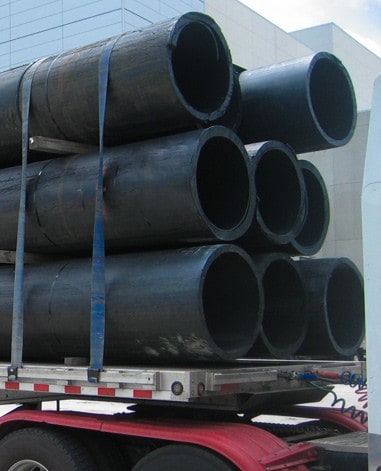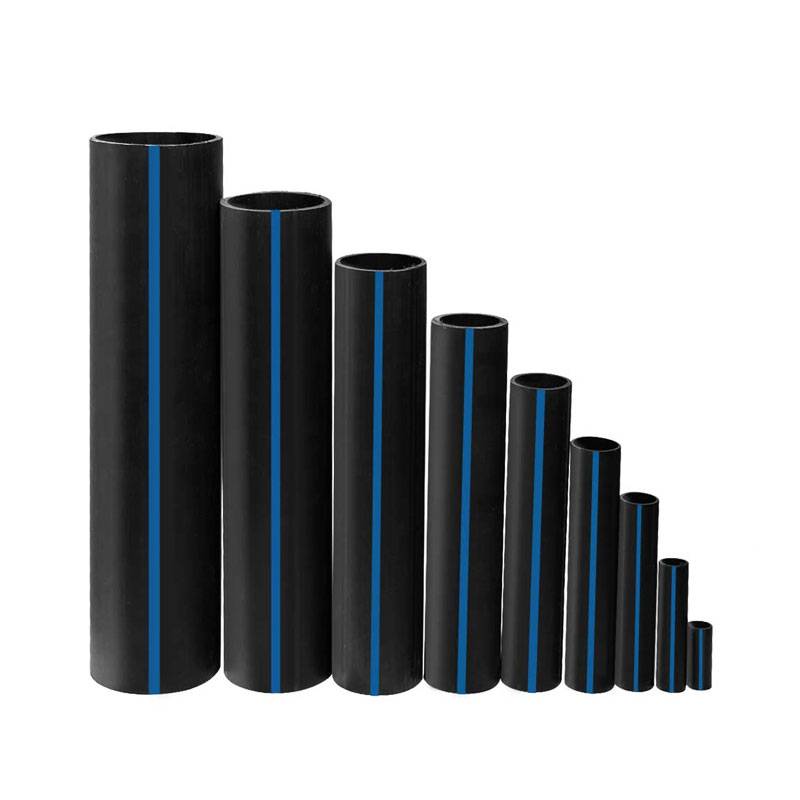FAQs About Texas hdpe pipe manufacturer and Their Process
Wiki Article
A Comprehensive Overview to the Various Uses HDPE Pipe in Construction and Market
HDPE pipes have actually emerged as an essential part in modern building and construction and industrial applications. Their distinct properties, such as resistance to rust and light-weight design, make them suitable for a vast array of uses. From water system systems to farming irrigation, HDPE pipes supply services that boost performance and sustainability. Recognizing their diverse applications is vital for specialists looking to maximize infrastructure. What details benefits do these pipelines give each field?Supply Of Water and Distribution Systems
Water supply and distribution systems are important elements of metropolitan infrastructure, usually relying upon high-density polyethylene (HDPE) pipes for their toughness and efficiency. These systems transportation drinkable water from treatment centers to consumers, ensuring ease of access and safety and security. HDPE pipes are preferred for their resistance to rust, chemicals, and severe temperatures, which enhances their long life and minimizes maintenance costs. Additionally, their lightweight nature enables simpler installation and transportation, making them perfect for numerous urban and country applications.The flexibility of HDPE pipes enables them to be installed in tight areas and around challenges, decreasing the requirement for considerable excavation (hdpe pipe in stock Midland TX). In addition, their smooth indoor surface decreases rubbing losses, improving water circulation prices. As cities continue to grow, the need for reputable water systems increases, placing HDPE pipelines as a sustainable remedy for modern-day facilities projects. Their tried and tested record makes them a recommended selection among designers and city organizers alike
Wastewater Management and Treatment
Efficient wastewater management and therapy are crucial for maintaining public health and wellness and ecological quality. HDPE pipes play an important function in this procedure as a result of their durability, resistance to deterioration, and ability to hold up against harsh chemicals. These pipelines are typically used in different applications, including sewer system, stormwater drainage, and wastewater treatment centers. Their light-weight nature helps with much easier setup and transport, reducing labor expenses and time.In addition, HDPE pipelines have a smooth indoor surface that minimizes friction loss, advertising efficient flow rates. They are likewise much less susceptible to leaks and failings contrasted to traditional materials, ensuring that pollutants are had efficiently. Additionally, their flexibility enables versatility in numerous dirt conditions, making them ideal for diverse ecological setups. As industries increasingly focus on sustainable methods, using HDPE pipelines in wastewater management systems straightens with goals for decreasing environmental influence and boosting source recuperation.
Agricultural Irrigation Solutions
In agricultural setups, effective watering options are necessary for maximizing plant yields and managing water sources. HDPE (High-Density Polyethylene) pipelines play an essential role in modern-day irrigation systems due to their longevity, versatility, and resistance to corrosion. Their capacity to endure high stress makes them perfect for both surface and subsurface irrigation applications, making certain consistent water distribution across fields.Farmers can use HDPE pipes in drip irrigation systems, which provide water straight to plant origins, minimizing wastefulness and promoting healthy growth. Furthermore, these pipelines are lightweight and very easy to set up, reducing labor costs and installation time. Their long lifespan and reduced maintenance needs additionally enhance their charm in agricultural techniques.
Additionally, HDPE pipelines are eco-friendly, as they can be recycled and do not leach dangerous chemicals right into the soil. This makes them a lasting choice for farmers aiming to take on environmentally friendly agricultural techniques while making best use of performance.
Industrial Applications and Processes
Convenience is a characteristic of HDPE pipelines, making them essential in different commercial applications and processes. These pipes are commonly made use of in try this web-site chemical handling industries due to their outstanding resistance to a wide variety of corrosive compounds. HDPE's light-weight nature, combined with high tensile strength, enables easy installation and long-term efficiency sought after settings.In the oil and gas industry, HDPE pipes play a necessary role in transferring hydrocarbons and gases, thanks to their durability and versatility - American Plastics HDPE Pipe for Oilfield. Additionally, they are utilized in mining procedures for the transportation of slurry and other materials, where conventional piping systems might fail
In addition, HDPE pipes are significantly utilized in producing facilities for supply of water lines and wastewater monitoring. Their capacity to endure extreme temperature levels and stress makes them suitable for a selection of commercial procedures. Generally, HDPE pipes add greatly to performance and safety and security across diverse industrial applications.
Stormwater Monitoring and Drainage Solutions
Stormwater management and drainage systems are essential components in metropolitan framework, designed to manage excess rainfall and lower flooding dangers. High-density polyethylene (HDPE) pipelines are significantly utilized in these systems due to their sturdiness, versatility, and resistance to corrosion. These pipelines efficiently transport stormwater far from booming locations, decreasing surface area drainage and stopping waterlogging.HDPE's lightweight nature helps with easier installation, minimizing labor prices and building time. Furthermore, its resistance to chemicals and environmental stress factors guarantees long life and dependability in different environments. Along with typical drainage applications, HDPE pipelines are additionally used in cutting-edge options such as eco-friendly infrastructure, that includes rain yards and permeable sidewalks.

Frequently Asked Questions
Exactly How Does HDPE Pipe Compare to PVC Pipe in Cost?
As a whole, HDPE pipe tends to be more expensive than PVC pipeline as a result of he has a good point its boosted resilience and versatility. Nevertheless, long-lasting expense factors to consider, such as upkeep and life expectancy, might favor HDPE in certain applications.
What Is the Life Expectancy of HDPE Water Lines Under Varying Problems?
HDPE pipes usually have a lifespan of 50 to 100 years, relying on environmental problems, installment methods, and usage. Variables such as temperature level, dirt type, and direct exposure to chemicals can significantly influence their longevity.Can HDPE Piping Be Recycled After Usage?
Yes, HDPE pipelines can be recycled after use. The recycling procedure entails melting down the material, permitting it to be repurposed into brand-new products, consequently promoting sustainability and reducing ecological effect related to plastic waste.Exist Any Kind Of Particular Installation Difficulties With HDPE Pipes?
Installment challenges with HDPE pipelines consist of proper jointing strategies, making sure appropriate trench problems, and managing thermal expansion. Furthermore, experienced labor is needed to deal with specialized equipment, which can complicate the installment procedure in different environments.
What Qualifications Should I Seek When Buying HDPE Pipelines?
When buying HDPE pipes, one must search for qualifications such as ASTM, AASHTO, and ISO, over at this website which validate quality and compliance with market standards, ensuring sturdiness and performance in numerous applications. - Midland TX HDPE Pipe Fittings in StockReport this wiki page